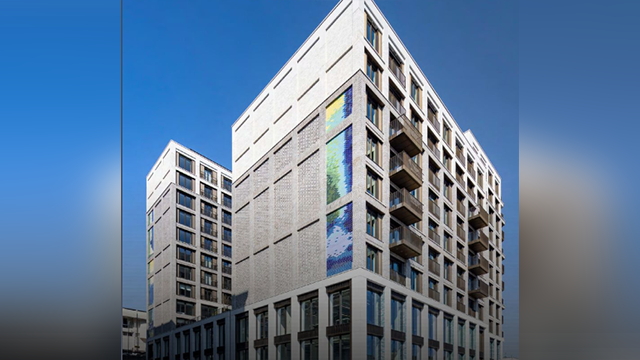GPS Estates Ltd v Secretary of State for Communities and Local Government
Moore-Bick, Pitchford and Gloster LJJ
Planning policy – Interpretation – Borough council issuing enforcement notice on ground that respondent’s use of off-airport site for airport-related car parking breaching local plan policy – Inspector granting planning permission for such use but that decision overturned by court – Whether relevant policy requiring need for airport-related parking to be demonstrated in general or in relation to particular development – Appeal allowed
The respondent operated a “meet and greet” service at Luton airport which involved collecting cars from passengers who had driven to the airport, storing the cars while the passengers were away, using a car park about 2km from the airport, and bringing them back in time for passengers to collect them at the airport on their return. In July 2012, the borough council issued an enforcement notice requiring the respondent to cease storing cars on the off-airport site. The council indicated that the use of the site contravened local plan policy LLA2 on airport-related parking, under which planning permission would not to be given for such a use unless it could be demonstrated that there was a long-term need for the development that could not be met on the airport and that the use was in accordance with the council’s surface access strategy encouraging the use of public transport. In support of that conclusion, they stated that they had given outline planning permission in 2006 for the redevelopment of another site, which would provide 5,000 off-airport parking spaces and which was expected to provide a considerable contribution to meeting the projected airport parking needs until 2030.
The enforcement notice was upheld by the appellant’s planning inspector on appeal. The inspector acknowledged that the outline approval for the other site had lapsed, but he also took into account the low occupancy levels in the car parks at the airport and found that there was no persuasive evidence to demonstrate a need for long-term parking at the respondent’s site, or to show that such use of the site accorded with the surface access strategy.
Planning policy – Interpretation – Borough council issuing enforcement notice on ground that respondent’s use of off-airport site for airport-related car parking breaching local plan policy – Inspector granting planning permission for such use but that decision overturned by court – Whether relevant policy requiring need for airport-related parking to be demonstrated in general or in relation to particular development – Appeal allowed
The respondent operated a “meet and greet” service at Luton airport which involved collecting cars from passengers who had driven to the airport, storing the cars while the passengers were away, using a car park about 2km from the airport, and bringing them back in time for passengers to collect them at the airport on their return. In July 2012, the borough council issued an enforcement notice requiring the respondent to cease storing cars on the off-airport site. The council indicated that the use of the site contravened local plan policy LLA2 on airport-related parking, under which planning permission would not to be given for such a use unless it could be demonstrated that there was a long-term need for the development that could not be met on the airport and that the use was in accordance with the council’s surface access strategy encouraging the use of public transport. In support of that conclusion, they stated that they had given outline planning permission in 2006 for the redevelopment of another site, which would provide 5,000 off-airport parking spaces and which was expected to provide a considerable contribution to meeting the projected airport parking needs until 2030.
The enforcement notice was upheld by the appellant’s planning inspector on appeal. The inspector acknowledged that the outline approval for the other site had lapsed, but he also took into account the low occupancy levels in the car parks at the airport and found that there was no persuasive evidence to demonstrate a need for long-term parking at the respondent’s site, or to show that such use of the site accorded with the surface access strategy.
The respondent brought a successful appeal against the inspector’s decision under section 289 of the Town and Country Planning Act 1990. The judge held that the inspector had erred in failing to grasp or deal with the point that the outline permission for the other site must have complied with policy LLA2, and that the council must therefore have been satisfied in 2006 that additional parking spaces were needed: see [2014] EWHC 806 (Admin).
The appellant appealed, contending that policy LLA2, properly construed, was concerned with whether there was a need for the particular development under consideration, rather than to whether there was a need for the provision of additional car parking capacity in general.
Held: The appeal was allowed.
(1) Construing policy LLA2 objectively, in accordance with the language used when read in its proper context, the question of need had to be answered in relation to a particular development. The criteria in policy LLA2 all referred back to “the development” and each was drafted in terms that were appropriate to relate to a particular development for which permission was being sought. All the criteria were therefore concerned with the characteristics of the particular development for which permission was being sought. The judge had therefore misinterpreted the policy so far as he had considered that the “need” criterion was directed to whether there was a need for the provision of additional car parking capacity in general.
Although, at the time when it served the enforcement notice, the council appeared to have overlooked the fact that the outline permission for the other site had lapsed, both sides were aware of the true position by the time the matter came before the inspector. That matter had not escaped the inspector’s mind. Moreover, in reaching his conclusion, the inspector had been heavily influenced by evidence relating to the capacity and occupancy levels of the on-airport car park. In the absence of any reason to expect a significant increase in the proportion of passengers choosing to arrive by car, that evidence provided a useful indicator of the likely future demand for parking spaces. The current low occupancy levels suggested that the existing capacity was far greater than was required and would continue to be adequate well into the future.
In those circumstances, the inspector had correctly interpreted the need criterion in policy LLA2 and had been entitled to conclude that there was no persuasive evidence to demonstrate that the need criterion was satisfied in relation to the respondent’s site. While the grant of outline permission for the other site in 2006 was some evidence that additional parking capacity had been thought, at that time, to be needed, the more recent evidence of capacity and occupancy levels was strong evidence to the contrary which the inspector had been entitled to take into account.
(2) The criterion of compliance with the surface access strategy gave rise to no difficulties of interpretation. The provision of additional airport-related off-airport parking would tend to undermine that strategy, which was to encourage passengers to use public transport. It was not possible to dismiss that objection on the ground that, on such an approach, no off-airport development providing additional parking could accord with the strategy and therefore none could be granted planning permission. The formulation of policy was for the local planning authority, who were entitled, subject to the usual public law constraints, to adopt policies that were highly restrictive. If circumstances developed in ways that rendered the policy obstructive or unworkable, then that might itself provide good reason for departing from it. However, the inspector had been entitled to find that the use of the respondent’s site did not accord with the surface access strategy and to dismiss the appeal on that ground also.
Stephen Whale (instructed by the Treasury Solicitor) appeared for the appellant; Celina Colquhoun (instructed by direct access) appeared for the respondent.
Sally Dobson, barrister
Read a transcript of GPS Estates Ltd v Secretary of State for Communities and Local Government here










